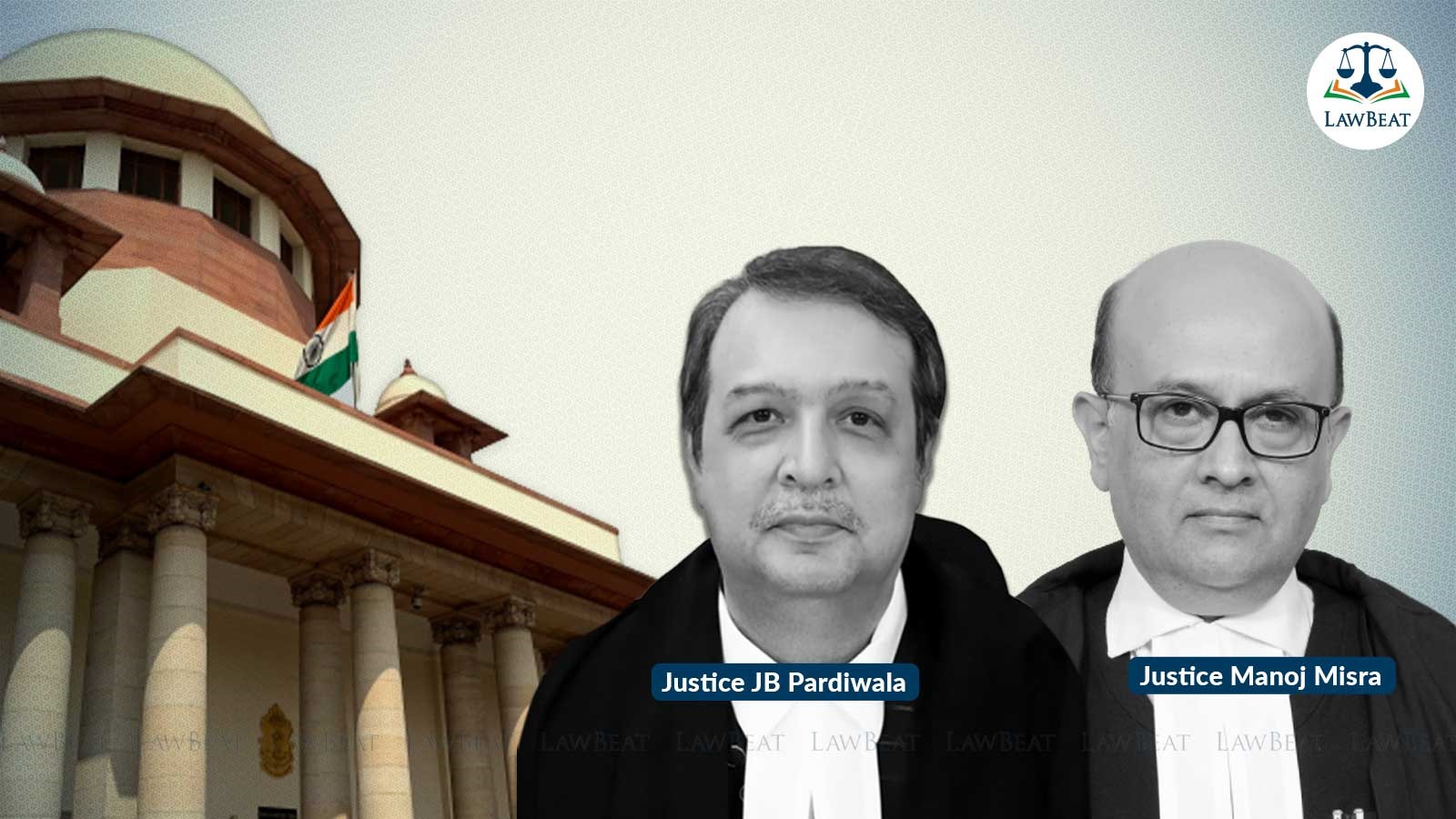Right to Property Enshrined in Constitution; Procedural Safeguards Essential: SC

The Supreme Court said the court must balance the need for finality in legal proceedings with the need to rectify injustice and the right of an individual to vindicate and protect private property cannot be brushed away merely on the grounds of delay and laches
The Supreme Court has underscored that the right to property is enshrined in the Constitution and requires that procedural safeguards be followed to ensure fairness and non-arbitrariness in decision-making, especially in cases of acquisition by the State.
A bench of Justices J B Pardiwala and Manoj Misra ruled that delays in approaching the court cannot override the duty to address illegalities and protect the right to property under Article 300A of the Constitution.
"The court must balance the need for finality in legal proceedings with the need to rectify injustice. The right of an individual to vindicate and protect private property cannot be brushed away merely on the grounds of delay and laches," the bench said.
The apex court upheld a Rajasthan High Court verdict that quashed the land acquisition proceedings for non-compliance with procedural requirements. It found that the acquisition process under the Rajasthan Urban Improvement Act (RUI Act) suffered from significant irregularities, including failure to pay compensation within the stipulated timeline under Section 60A(4) and non-adherence to due process during possession.
Court opined that the writ petition filed before the High Court, despite the significant delay, raised substantial questions regarding the legality of the land acquisition proceedings.
"The alleged patent illegality in the acquisition process justify the condonation of delay in this exceptional case," it said.
Court identified three major procedural lapses that prejudiced the rights of the landowners:
- Failure to Serve Proper Notice: Notices under Section 52(2) of the RUI Act were neither served individually on landowners nor pasted conspicuously in the locality, as required.
- Premature Possession: The State Government and the appellant Trust took possession of the land before depositing compensation, violating Section 52(7) of the RUI Act.
- Delayed Compensation: Compensation was not paid within the statutory timelines stipulated in sub-sections (3) and (4) of Section 60A, with a delay of nearly a decade in depositing the amount in court.
"These procedural anomalies are glaring and necessitate discussion regarding the propriety of the acquisition proceedings so as to ensure that the landowners are not dispossessed of their property without following due procedure," the bench said.
Addressing the validity of notifications under Section 52(1) of the RUI Act, the bench found that improper service of notice under Section 52(2) significantly prejudiced the landowners' rights, particularly regarding the Moongaska land. It upheld the High Court’s decision declaring the notification invalid.
The improper procedure being adopted by the State Government and the appellant Trust when it took possession of the Nangli Kota lands before depositing compensation for the same was in contravention of the mandate of Section 52(7) of the RUI Act, it further held.
With regard to the appellant’s challenge to the inordinate delay of 21 years in filing of the writ petitions by the respondents, the bench said, "We are of the view that the same needs to be considered in the facts and circumstances of the case. While it is true that the courts have consistently held that undue delay in approaching the court can be a ground for refusing relief, the courts have also recognized that in exceptional cases, where the impugned action is patently illegal or affects fundamental rights, the delay must be condoned".
Furthermore, court pointed out the provisions of the Section 52(2) are akin to Section 4 of the Land Acquisition Act, 1894. To initiate the acquisition proceedings, the State must publish a notice under Section 52(2) of the RUI Act for the owners or any other interested parties to show cause as to why their land should not be acquired, it noted.
In the case, the bench, however, found the participation in the proceedings by the landowners themselves, which was sufficient evidence that the object of the publication of the notice under Section 52(2) was met.
"We are of the view that the acquiring authority that is, the State was not required to prove actual notice of the proposal to acquire in this case and the knowledge of the appellants about the acquisition proceedings is equivalent to implied notice to the appellants. Therefore, the non-service of individual notices upon the owners under Section 52(2) cannot be a ground to invalidate the acquisition proceedings. We find that the reasoning of the High Court to this extent is liable to be set aside," the bench said.
On compensation, the bench noted neither the state government nor the appellant Trust deposited the amount towards compensation to be paid to the respondents within a period of six months.
"In fact, there was an inordinate delay of almost 10 years in depositing the compensation amount in the reference court. Further, no reason worth the name has been provided by the state government and the appellant Trust for such delay. We are of the view that the contention of the appellant Trust regarding the delay in the payment of compensation due to parallel proceedings before the revenue authorities, cannot be accepted," the bench said.
Case Title: Urban Improvement Trust Vs Smt Vidhya Devi And Ors
